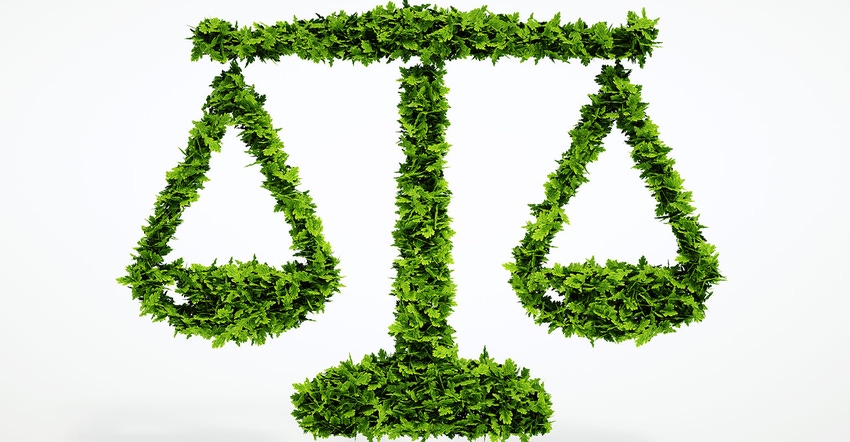Strict participation limits prohibit most consumers from participating in the free recycling programs, claims the lawsuit. Instead, consumers can purchase “costly Zero Waste Boxes to return the products to TerraCycle at a hefty price.”
August 12, 2021

When I first wrote about TerraCycle Inc., I was skeptical of the business model. The company developed an online shopping platform in which specific brand-name products from program partners are packed in a durable, reusable, returnable tote and sent to consumers. After the products are used, the empty bottles and packages are put back into the tote and returned to TerraCycle using a pre-paid UPS shipping label. Consumers receive another shipment of the products in the same tote.
Are people really going to buy these products and ship the empty containers to TerraCycle? After all, it’s been difficult to get people to put recyclables into curbside recycling bins, much less sign up for a program that requires greater consumer involvement. The plan has some obvious obstacles, but TerraCycle is running into some legal issues unrelated to this.
According to a civil complaint filed on March 4, 2021, by environmental organization The Last Beach Cleanup in the Superior Court of California, County of Alameda, TerraCycle and participating brand owners are misleading consumers about a free program to recycle products that established municipal recycling programs are not capable of recycling.
Lexington Law Group (San Francisco) and the Law Office of Gideon Kracov (Los Angeles) are attorneys for the plaintiff, The Last Beach Cleanup. Defendants named in the suit in addition to TerraCycle Inc. are CSC Brands LP; Gerber Products Co.; Late July Snacks LLC; L’Oreal USA S/D Inc.; Materne North America; The Coca-Cola Co.; The Clorox Co.; The Procter & Gamble Co.; Tom’s of Maine Inc., and Does 1 through 100, inclusive.
Bait and switch?
The consumer products brands promote their participation with TerraCycle in a program that advertises, markets, and sells a variety of products and packaging made from single-use plastics and other materials that are difficult to recycle “with an unqualified representation stating that they are recyclable with TerraCycle Inc.,” . . . which prides itself on working with companies to offer free programs for consumers to recycle products that established municipal recycling programs are not capable of recycling. However, there is an undisclosed catch,” says the filing.
The “catch” is that the defendants have “strict participation limits that prohibit most consumers from participating in their recycling programs.” In other words, the filing notes, “consumers purchase the products with the belief that they will be able to recycle the products for free by sending the products to TerraCycle, only to find out after purchasing the products that participation in the defendants’ free recycling program [is] closed.”
Instead, consumers can purchase “costly Zero Waste Boxes to return the products to TerraCycle at a hefty price.” Hence, many consumers are forced to put the discarded products into curbside trash bins bound for landfills or into recycling bins, which can cause contamination of “legitimate” recycling streams.
Are the products even being recycled?
The lawsuit filing noted that very few products were accepted for the “limited” recycling programs TerraCycle offered. Worse, “it is unclear whether the products are actually recycled,” said the suit.
“Under both California law and the Green Guides, defendants are required to maintain records supporting the validity of any environmental marketing claims,” stated the suit. “However, in response to Plaintiff’s pre-suit request, Defendants have not provided records substantiating that the products collected are actually recycled and manufactured into new products.”
The complaint seeks to “remedy Defendants’ unlawful, unfair, and deceptive business practices with respect to the advertising, marketing, and sale of the products. Because most consumers cannot participate in Defendants’ free recycling programs, Defendants’ unqualified recycling representations are false and misleading in violation of California’s consumer protection statutes.”
The complaint further states that TerraCycle is “at best recycling only a few thousand products per year, and the Defendants are reaping the rewards of portraying themselves as environmentally friendly without providing any meaningful benefit to the environment or to consumers concerned about sustainability.”
An article in the July 27, 2021, issue of Resource Recycling gave extensive details about the lawsuit, as well as a response from TerraCycle CEO Tom Szaky, who denied “any and all claims” made in the complaint. The Zero Waste Box program mentioned above was the “second-biggest money maker” for TerraCycle, “bringing in $7.5 million in net sales and $1.8 million in income before taxes in 2020,” Resource Recycling stated in its article.
It will remain to be judged in court whether TerraCycle’s program is just another form of “greenwashing” and whether the big brand owners that participated in the program knew it wasn’t achieving the goals being promoted.
About the Author(s)
You May Also Like




